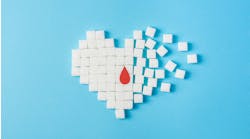Washington leads the nation in providing preventive dental care to young children from low- income families. More than 54% of Medicaid-enrolled children under age six are currently receiving dental care. The number of children accessing care has increased dramatically in large part because of the Access to Baby and Child Dentistry (ABCD) program, which was recently expanded to every county in the state. The ABCD program has received national acclaim for its success in getting low-income children the critical, early, preventive dental care they need to improve their oral- and overall- health for a lifetime.
RELATED: The Children's Oral Health Campaign sees success after just one year
Dental disease is almost 100% preventable, yet it is the most common chronic disease affecting children in the U.S. Dental disease is painful and can make it difficult for children to eat and sleep. Poor oral health also affects school readiness because a child in pain cannot concentrate and perform well in school. Early dental care is important to prevent dental disease and prevention saves money for families and taxpayers. It costs much less to prevent dental problems from occurring than to pay for expensive treatment.
The ABCD program connects Washington’s low-income families with children from birth to age six with oral health education, early prevention services and dental care. ABCD programs were just recently established in Clallam and Jefferson counties. The program is now operating in all 39 Washington counties. As a result, more than 165,000 Medicaid-enrolled children are receiving dental care - doubling the number who were receiving care a decade ago.
“Washington State is setting the standard for delivering preventive dental care to young low-income children,” said MaryAnne Lindeblad, state Medicaid director in the Health Care Authority. “Medicaid, the WDS Foundation and local dental societies have been true partners in this effort. We congratulate the ABCD local and state program sponsors who have now succeeded in expanding this wonderful initiative to every county in the state.”
The program was initially developed in Spokane in 1995 because too few low-income children were receiving dental care, even though they were eligible through Medicaid. Since then, the ABCD program has been expanded county by county with the help of three-year start-up grants from the WDS Foundation. The final two counties, Clallam and Jefferson, have just trained their first ABCD dentists who are starting to provide care to Medicaid-enrolled children. As a result of the ABCD program more dentists are serving Medicaid–enrolled children than ever before.
“Early dental visits are critical to teach good oral health habits. Early care helps to prevent cavities and reduce the need for more expensive dental treatment,” said Eve Rutherford, DDS, an ABCD dentist and Washington Dental Service Foundation Board Chair. “ABCD is successful because it helps to educate families about the importance of oral health and prevention, it works to increase the number of dentists who provide services and it involves local partners who care about kids and their future.”
The ABCD program is also making substantial progress increasing the number of children who receive care before their second birthday. Experts, including the American Academy of Pediatrics and the American Academy of Pediatric Dentistry, recommend that all children have oral health screenings prior to age one by a dentist or a physician. This is a critical time to identify children at risk for severe dental decay and to share information with families about how to protect their child’s oral health. Today, more than 38,000 children under age two (31.6% of enrolled children) receive dental services annually. When the program was initiated in 1997, only 3% of enrolled infants and toddlers received dental care.
“ABCD has improved the lives of tens of thousands of children and helps save money in avoided treatment costs,” said Joel Ryan, Executive Director of the Washington State Association of Head Start and ECEAP. “Early dental care helps keep kids healthy, which is critical for their ability to do well in school. Access to Baby and Child Dentistry is a model for the rest of the nation.”
The ABCD program relies on many partners who understand the importance of ensuring that young children are healthy and free from dental disease. Across the state many organizations support ABCD programs including Head Start, United Way, early childhood programs and the Women, Infant, Children (WIC) Nutrition Program.
The ABCD Program has for several years included primary care medical providers who are being trained to provide oral health screenings during well-child checkups. Pediatricians and family physicians deliver preventive oral health services including risk assessment, education, fluoride varnish and referral to an ABCD dentist. Because young children are seen by a physician about eight times before age three, this is an opportune time to identify children who are at risk for decay, and to ensure parents understand the importance of oral health and have the latest information about how to take care of their child’s teeth.
Another development that will contribute to improved oral health in Washington is the restoration of dental coverage for low-income adults. During the most recent session, state legislators approved funding to provide dental coverage for Medicaid-insured adults beginning January 1. This is good news for low-income adults and their children. Research shows that when parents go to the dentist they are more likely to ensure that their children go to the dentist as well.
____________________________________________________________________________________
RELATED:
Scottish study finds that preschool tooth-brushing program saves millions, improves kids' oral health
Sunstar Americas launches new GUM Crayola Squeeze-A-Color Toothpaste
____________________________________________________________________________________





